Photographs: Punit Paranjpe/Reuters Shyamal Majumdar in Mumbai
What makes the Air India strike unique is the sheer audacity of the pilot unions to remain defiant, even though the courts have termed the strike illegal, writes Shyamal Majumdar.
Air India is not the only airline that is making headlines for all the wrong reasons.
United Continental Holdings, the parent company of United Airlines, is also in the spotlight for its post-merger labour troubles.
Last week, pilot union leaders at the world's largest airline asked its 12,000-odd members to hold a vote on whether to strike over the failure to reach a contract agreement through two years of post-merger negotiations.
The Air Line Pilots Association, representing pilots who worked for United Airlines and Continental Airlines before the two merged in October, 2010, said something that is quite familiar to all of us by now: "While a strike is never the pilots' preference for the path to reaching agreement, we are more than willing to use every tool at our disposal."
. . .
Air India's rich 'workmen'
Photographs: Reuters
The broad point is that almost every airline in the world has faced labour trouble after mergers.
Australian carrier Qantas grounded its entire fleet because of a dispute with labour unions and left thousands of passengers stranded.
Also, it took US Airways years after its merger with America West to get unified contracts for pilots.
Similarly, Delta, whose 2008-merger with Northwest is seen by many in the industry as exemplary, is only beginning to merge much of its workforce after the National Mediation Board rejected complaints from three unions that the airline interfered in their elections.
. . .
Air India's rich 'workmen'
Photographs: Reuters
The problem in United Continental was the reconciliation of the two seniority scales that determine who gets to fly where and how much everyone gets paid.
But the similarities end there. Unlike their counterparts in Air India -- who went on strike three times in the past one year, causing a loss of over Rs 500 crore (Rs 5 billion) -- United pilots may find the going tough even if the union members authorise them to call a strike.
Federal law makes it difficult for airline unions to strike and the White House can intervene to stop any walkout to keep the US commerce moving.
Indian laws have obviously been far more benign.
Also, what makes the Air India strike unique is the sheer audacity of the pilot unions to remain defiant, even though the courts have termed the strike illegal.
. . .
Air India's rich 'workmen'
Photographs: Reuters
In fact, minutes after the Air India management filed a contempt notice in the court on Wednesday, the unions held a press conference to allege serious financial irregularities by the management.
At the heart of the problem is archaic labour laws that recognise pilots as 'workmen' and allow them the same rights as industrial workers -- which includes the right to go on strike.
Consider the income of these 'workmen': the 1,600 Air India pilots draw a salary of Rs 800 crore (Rs 8 billion) every year.
A commander gets as much as Rs 700,000-800,000 a month, which is 15 per cent more than what pilots in private airlines earn.
. . .
Air India's rich 'workmen'
Photographs: Vivek Prakash/Reuters
The perks include free air travel for the entire family six times a year. And these privileges are in perpetuity -- meaning they will continue getting these even after retirement.
The latest agitation by these 'workmen' involves a contention by pilots who worked for Air India before the merger that they have sole rights to fly new Boeing 787 Dreamliner aircraft, rather than splitting the job with former Indian Airlines pilots as the management ordered.
And this has already led the ailing national carrier to drastically curtail its international flight operations, particularly to North America and Europe.
. . .
Air India's rich 'workmen'
Photographs: Reuters
The airline has already lost over Rs 190 crore (Rs 1.9 billion).
Air India's labour problems date back to at least 2007, when Air-India and Indian Airlines announced they would merge into Air India.
But there has been little integration in an airline that is prone to nepotism and political meddling.
For example, human resource, or HR, is still not a common department, resulting in disparity in pay scales, allowances and career progression.
And that is at the heart of the latest dispute between Air India's management and pilots.
On its part, the civil aviation ministry is in the process of implementing the Dharmadhikari Committee report.
. . .
Air India's rich 'workmen'
Photographs: Reuters
The committee was set up to look at the core problems of HR and ways to achieve better integration between the two factions.
But the government will need to take tough decisions if the recommendations are to be implemented.
For example, take the suggestion on downsizing operations, which would involve shutting down the big loss-making routes, especially internationally.
That will mean cutting its substantially large staff strength, and more internal troubles.
. . .
Air India's rich 'workmen'
Image: A fuel tanker moves past Air India passenger jets parked at an airport in Kolkata.Photographs: Rupak De Chowdhuri/Reuters
Also, the committee has reportedly suggested that the productivity-linked incentive of the merged entity's employees should be merged with their basic salary and such incentives be linked with the profitability of the carrier, not with operational parameters, as is the practice currently.
The recommendation is hardly rocket science and is an obvious one, but given the track record, the question is will the civil aviation ministry have the courage to bite the bullet?
An answer to that question will determine whether the 'workmen' will continue to hold Air India to ransom.

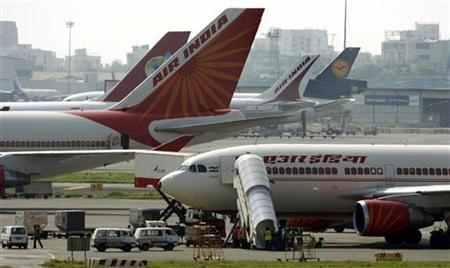
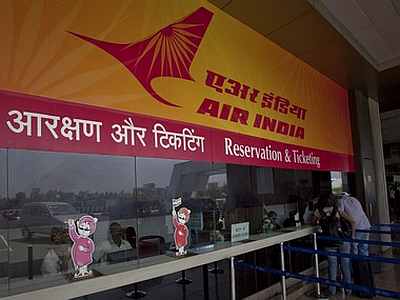
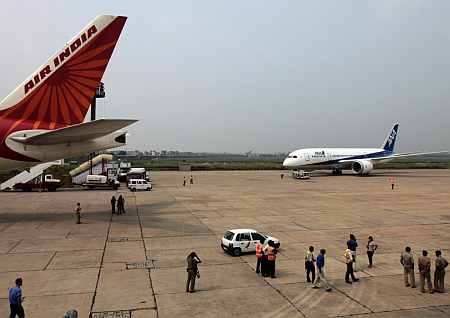
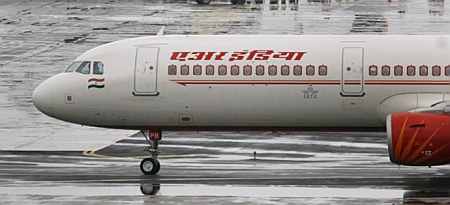
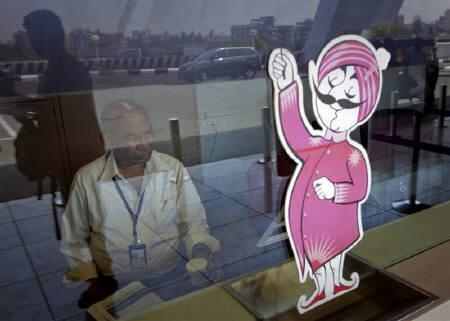
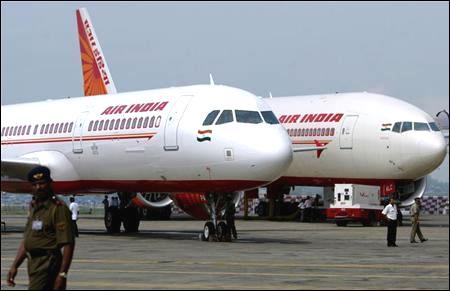
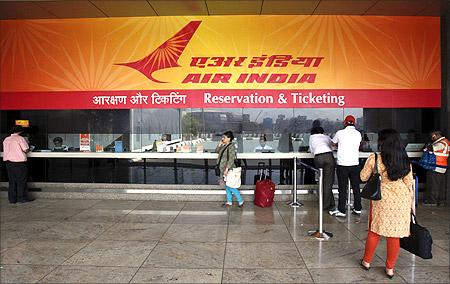
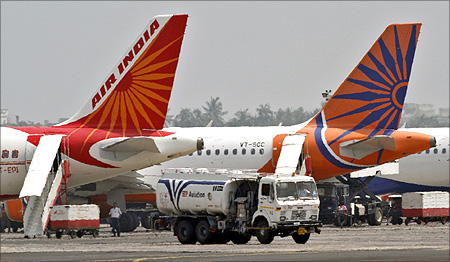

article